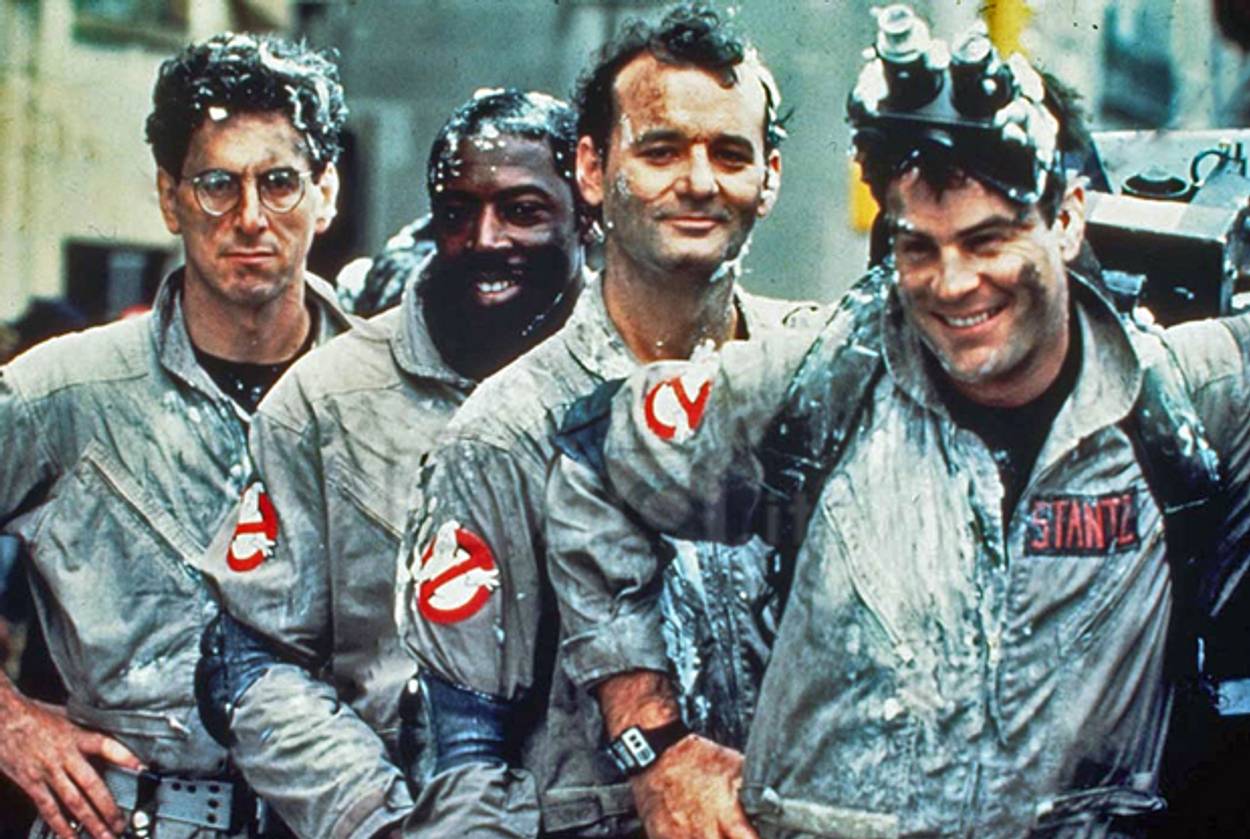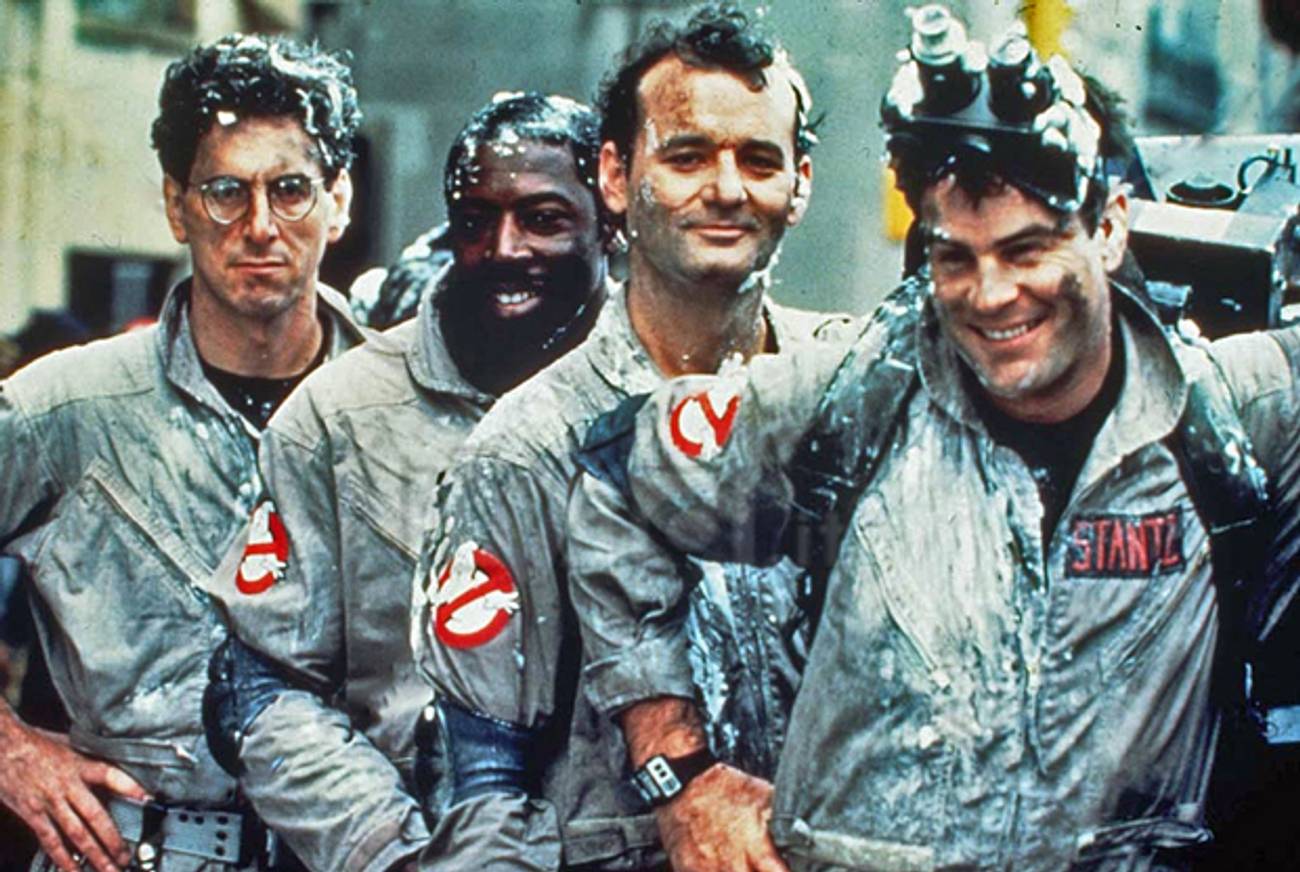‘Ghostbusters’ for Libertarians
How the 1984 paranormal comedy ended up in the conservative film canon




One of the T-shirts for sale at despair.com, the Austin-based purveyor of souvenirs satirizing platitudes of corporate motivation, features side-by-side icons of a Democratic donkey and a Republican elephant, sandwiched together within the phrase “Choose the form of the Destructor.”
As everyone knows, that’s a line from Ghostbusters, still going strong as a pop-culture touchstone, and, having been the box-office champ of Ronald Reagan’s re-election year, also sometimes as a trumped-up political talking point. Just last week the film prompted an interview question about director Ivan Reitman’s politics. Asked how he felt that his biggest hit had landed on a list of best-ever conservative movies, Reitman called himself “something of a conservative-slash-libertarian,” a viewpoint he agreed was evident in the anti-government-meddling spirit of Ghostbusters.
It may seem dubious for conservatives and libertarians to take political pride in a movie whose climax involves its heroes exploding an enormous sailor-suited marshmallow man, as clearly this act constitutes an infringement on his individual liberties, let alone a failure to express gratitude for his military service. Remember, though, the key point that the form of the Destructor was theirs to choose. Prior to him, of course, the Ghostbusters’ primary adversary was an uptight regulator from the Environmental Protection Agency.
Reitman—producer of Animal House, director of Meatballs, father to Jason, son of an Auschwitz survivor—may be copping to making that rare movie that libertarians can allow themselves to love. The impulse to list great conservative or libertarian films is maddeningly thwarted; before being aborted, or crashing on the rocks of movies made from Ayn Rand novels, such efforts often turn up the Will Smith vehicle The Pursuit of Happyness, as much for its sentimental up-by-the-bootstraps triumphalism as for the relief to be had from including it among other films in which people of color tend to fare decidedly less well. In such a world, given also a preponderance of Russell Crowe, Clint Eastwood, Mel Gibson, and Kurt Russell, it must be such a great relief to find Bill Murray.
Early on in Ghostbusters, Murray’s character explains to his colleagues in signature deadpan, “We are on the threshold of establishing the indispensable defense science of the next decade…The franchise rights alone will make us wealthy beyond your wildest dreams.” Of course, the reason it’s funny is that he seems sarcastic. Later, when he tells his love interest, played by Sigourney Weaver, that he’s a scientist, she replies that he seems more like a game show host. It’s sort of like being told Ronald Reagan is the leader of the free world, and replying that he seems more like an aging B-movie matinee idol. Well, as long as he’s in on the joke, right?
Hardcore free-marketeers who use a paranormal comedy blockbuster to justify their worldview must be at least marginally more fun to hang out with than dour Marxists who see it not just as a pro-business, anti-regulation diatribe but also the insidious endorsement of “false need” consumerism. It just goes to show that staking political claims on popular movies ultimately isn’t good for much beyond driving a people to despair, or at least to despair.com.
Reitman did go on to direct three of history’s cutesiest Arnold Schwarzenegger vehicles—four if you count the upcoming Triplets, a sequel to Twins that folds Eddie Murphy into Schwarzenegger and Danny DeVito’s fraternal hijinks. Surely there will be some cultural significance to unpack from an Arnie-Danny-Eddie combo, especially at this stage of their respective careers, but probably not much of a coherent political philosophy.
Jonathan Kiefer is a writer in San Francisco. His Twitter feed is @kieferama.